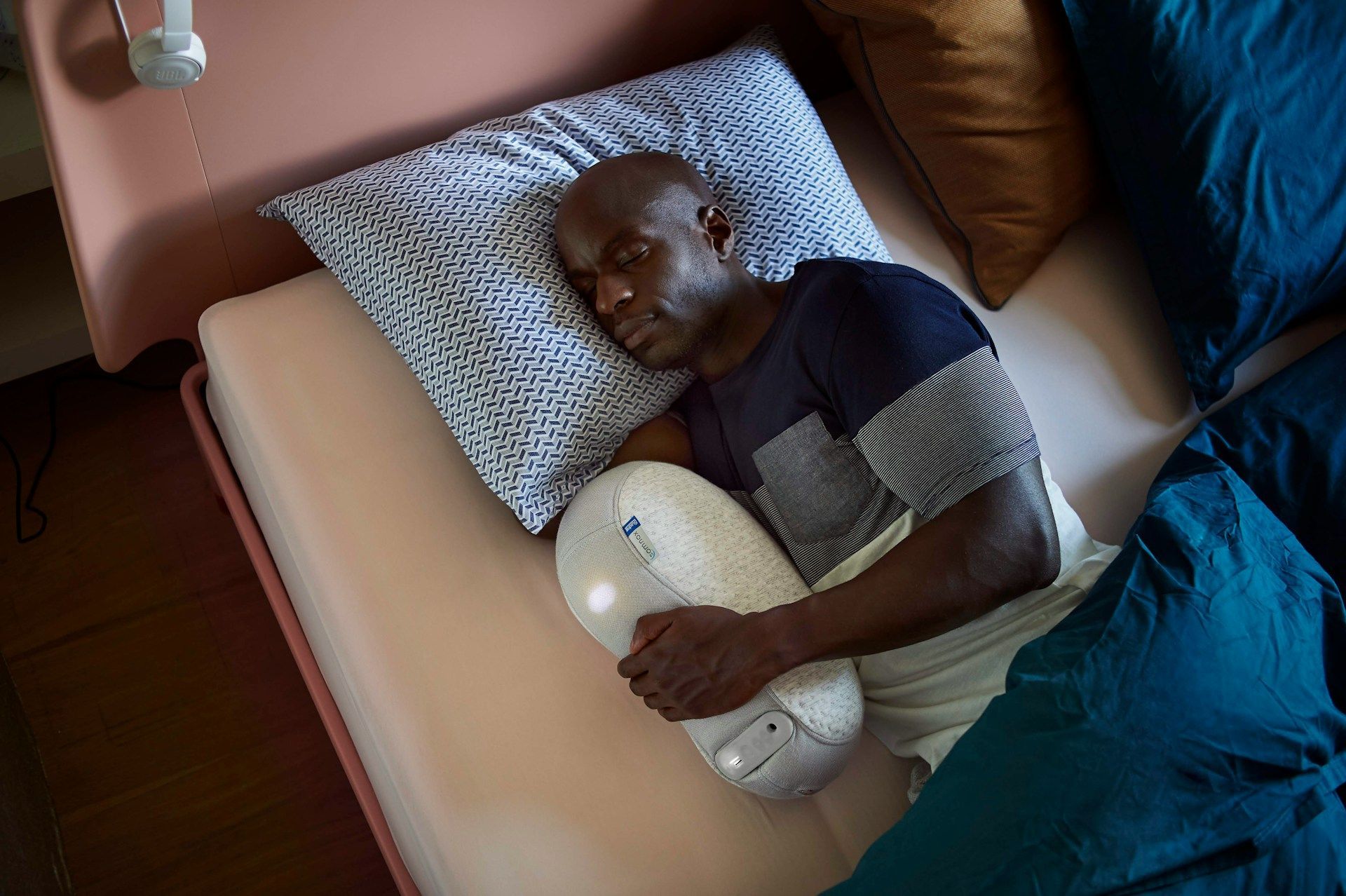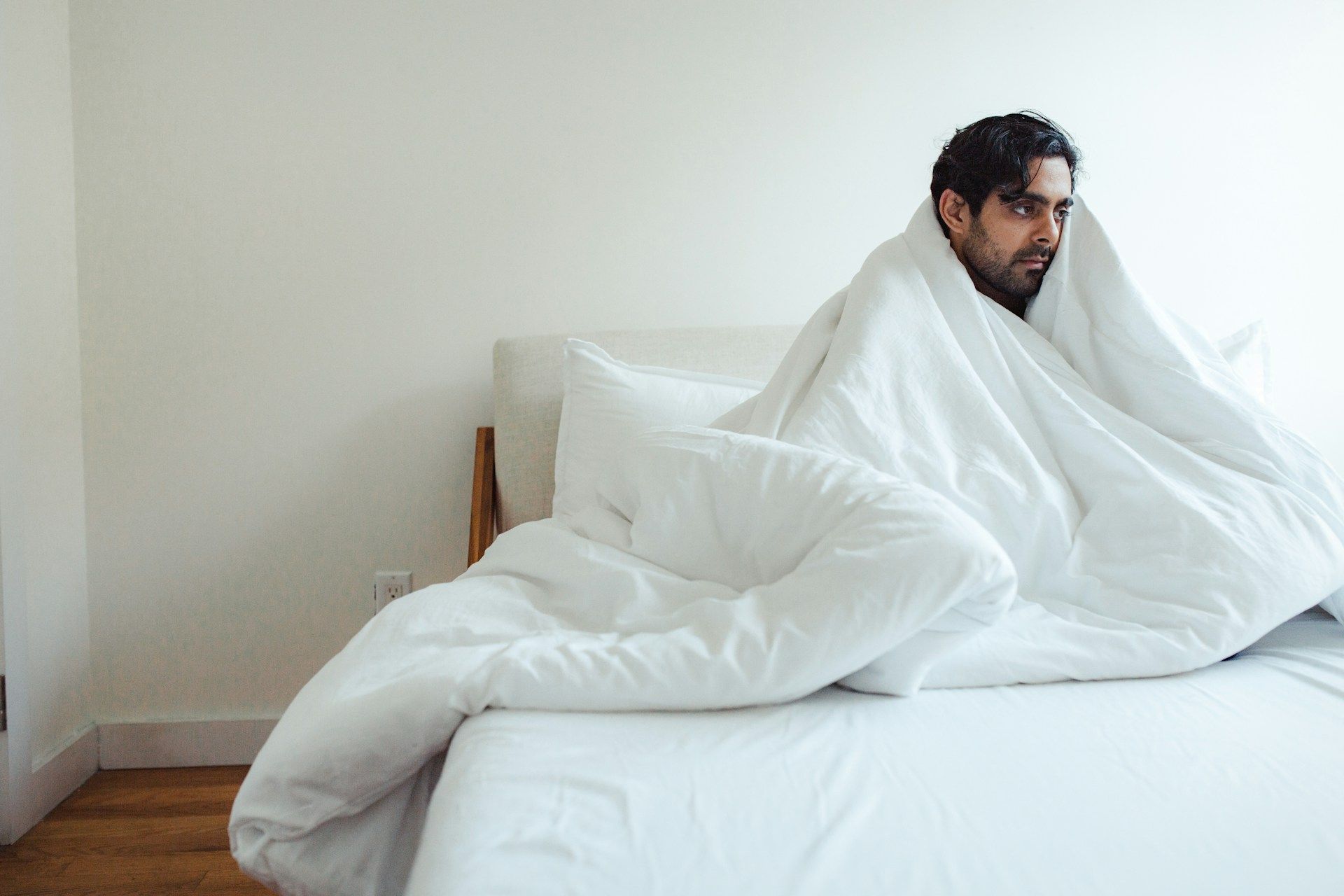Managing Stress and its Impact on Sleep Apnea: Tips and Techniques for a Restful Night

As a sleep apnea treatment center, Sleep Advantage in Arlington, WA, is dedicated to helping individuals understand and manage every aspect of their condition. While sleep apnea is primarily characterized by interrupted breathing during sleep, several external factors can exacerbate the symptoms and overall severity of this disorder.
One such factor is stress, an often-overlooked contributor to sleep apnea. By managing stress levels effectively, individuals can not only improve their sleep quality but also experience a more restful night, which is essential for overall health and well-being.
This blog will explore the connection between stress and sleep apnea, including how stress can directly impact the severity of sleep apnea symptoms. We will also provide practical tips and techniques for managing stress, ultimately fostering a better night's sleep and improved quality of life for those living with sleep apnea.
As a leading sleep apnea treatment center in Arlington, WA, Sleep Advantage strives to empower patients with the knowledge and tools necessary to manage every facet of their condition. With personalized treatment plans tailored to each individual's unique needs and concerns, our team of experts focuses on ensuring that patients receive the comprehensive care and guidance they require for a healthier future.
By recognizing and addressing the impact of stress on your sleep apnea symptoms, you can take an essential step toward a more restful, rejuvenating night's sleep. In this blog, we'll share the knowledge and strategies you need to manage stress effectively, paving the way for better sleep and an improved overall quality of life.
Managing Stress and its Impact on Sleep Apnea: Tips and Techniques for a Restful Night
Living with sleep apnea can be challenging, and external factors like stress can significantly impact the severity of the condition. This blog will explore the connection between stress and sleep apnea and provide practical tips for managing stress to improve sleep quality and overall well-being.
The Connection Between Stress and Sleep Apnea
Stress and sleep apnea can be a vicious cycle, where stress worsens sleep apnea symptoms, leading to poor sleep quality, which in turn can exacerbate stress levels. The link between the two can be attributed to the following factors:
1. Muscle Tension: Elevated stress levels often cause muscle tension, which can contribute to airway restriction and an increased likelihood of sleep apnea episodes.
2. Hormonal Imbalance:
Stress can affect the balance of hormones in the body, potentially influencing sleep patterns and the overall severity of sleep apnea.
3. Emotional Factors: Heightened stress can lead to anxiety and depression, both of which have been linked to sleep disturbances, including sleep apnea.
By recognizing the ways in which stress impacts sleep apnea, individuals can better understand the importance of effective stress relief in their overall treatment plan.
Strategies for Managing Stress to Improve Sleep Apnea Symptoms
Now that we understand the connection between stress and sleep apnea, let's explore effective stress management techniques to help improve sleep quality and reduce sleep apnea symptoms.
1. Regular Exercise
Physical activity not only has a wealth of physical health benefits but also significantly impacts mental well-being. Engaging in regular exercise, such as walking, swimming, or yoga, can help reduce stress levels and improve sleep quality. Exercise should ideally be performed early in the day to avoid stimulating the body too close to bedtime.
2. Relaxation Techniques
Incorporating relaxation techniques into your daily routine can promote a sense of calm and reduce stress. Techniques to consider include deep breathing exercises, progressive muscle relaxation, or mindfulness meditation. Practicing these techniques regularly can help create a relaxed state conducive to better sleep.
3. Maintain a Consistent Sleep Schedule
Establishing and adhering to a consistent sleep schedule can help regulate the body's internal clock, making it easier to fall asleep and wake up each day. Going to bed and waking up at the same time each day, even on weekends, supports a healthy sleep pattern and can reduce sleep apnea episodes.
4. Create a Sleep-Friendly Environment
Your sleep environment plays a significant role in the quality of your sleep. To promote relaxation and reduce stress, ensure your bedroom is cool, dark, and quiet. Invest in comfortable bedding, minimize exposure to electronics before bedtime, and keep distractions, such as work or clutter, out of the bedroom.
5. Seek Professional Help
If stress is significantly impacting your sleep apnea symptoms and daily life, it may be beneficial to consult a mental health professional for additional support. A therapist or counselor can help you identify the sources of your stress and provide tailored strategies for stress reduction.
6. Connect with Others
Social support is an essential component of stress management. Connect with friends, family, or support groups to share your experiences, seek advice, and receive encouragement. Having a network of support can greatly reduce feelings of isolation and stress.
7. Prioritize Self-Care
Remember to prioritize self-care and engage in activities that bring joy and relaxation. This can include hobbies, spending time outdoors, or simply taking some quiet time for yourself each day. Practicing self-care can help reduce stress levels and improve overall mental well-being.
8. Proper Nutrition
Eating a well-balanced diet is crucial for maintaining overall health, including reducing stress and promoting better sleep. Avoid excessive caffeine, sugar, and alcohol, all of which can negatively impact sleep quality. Instead, focus on consuming nutrient-rich foods with plenty of vitamins, minerals, and antioxidants to support optimal well-being.
Conclusion
Effectively managing stress is an essential component of sleep apnea treatment. By understanding the connection between stress and sleep apnea and implementing practical stress reduction techniques, individuals can improve their sleep quality and experience a more restful night.
As a leading
sleep apnea treatment center in Arlington, WA, Sleep Advantage is committed to providing comprehensive care and support for those living with sleep apnea. By addressing stress and other external factors that impact sleep apnea, we can help guide our patients toward better sleep and improved quality of life.










